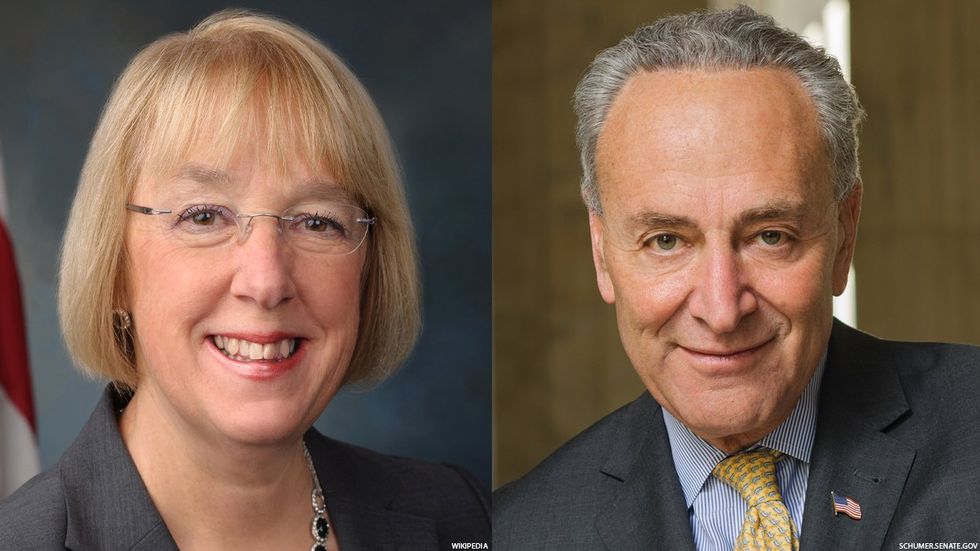The U.S. Senate has passed its version of the National Defense Authorization Act without any of the anti-LGBTQ+ or anti-abortion provisions in the House version, setting up a major battle.
The Senate passed the bill Thursday, approving $886 billion in funding for the armed forces, in a bipartisan 86-11 vote.
It lacks the amendments, known as “riders,” that the Republican-led House approved in its version, that include a ban on insurance coverage for trans service members’ gender-affirming care, a ban on reimbursement of travel costs for service members who have to go out of state to undergo an abortion, and that eliminate diversity, equity, and inclusion programs for the military.
The House and Senate have to agree on one version before the NDAA can go to President Joe Biden for his signature or veto.
“What’s happening in the Senate is a stark contrast to the partisan race to the bottom we saw in the House, where House Republicans are pushing partisan legislation that has zero chance of passing,” Democratic Sen. Chuck Schumer of New York, the majority leader, said on the floor Thursday, as reported by several national media outlets. “We are passing important bipartisan legislation; they are throwing on the floor partisan legislation that has no chance of passing.”
“The conventional wisdom is that many of the most hardline provisions House Speaker Kevin McCarthy and Republicans packed into their bill to win conservative votes won’t survive negotiations with the Senate,” Politico reports.
The Senate Appropriations Committee has also moved all 12 appropriations bills to the full Senate, and that will set up another clash with the House, which has likewise loaded its versions of those bills with anti-LGBTQ+ and anti-abortion riders. The NDAA is considered a policy bill rather than an appropriations bill, setting priorities for funding, while the money is actually appropriated by separate legislation.
“This committee just finished passing all 12 individual appropriations bills in overwhelmingly bipartisan votes — and we did it before the end of July. Everyone who follows this process knows: that is a big deal,” Democratic Sen. Patty Murray of Washington State, the committee chair, said Thursday. “This is the first time since 2018 we have marked up all 12 of our bills — and the first time we’ve done it, actually, on live video. It is not mission accomplished. As we all know: We still have to get these bills passed through the full Senate, and the House, and signed into law, and I know that all of us are going to work really hard to get that done. But this is a really big deal.”
The bills passed out of committee include the Labor, Health and Human Services, Education, and Related Agencies appropriations bill, which maintains and in some cases increases funding for domestic HIV prevention and treatment programs — while the Senate version would cut that funding and even eliminate the “Ending the HIV Epidemic Initiative,” which started under no less than Donald Trump.
“We sincerely thank Senate Labor HHS Appropriations Subcommittee Chair Tammy Baldwin and Ranking Member Shelley Moore Capito and their colleagues for demonstrating their continued commitment to ending HIV in the United States. While working within the confines of an extremely restrictive budget agreement, they still were able to craft a spending bill that prioritizes the domestic response to HIV,” Carl Schmid, executive director of the HIV+Hepatitis Policy Institute, said in a press release. “However, given that the House version of the bill includes sizable funding cuts, program eliminations and divisive policy riders, we realize passage of this spending bill is far from reality. House Republicans must come to the table and support bills, such as this one, that can pass the Congress and be signed by the president.”
And the full House has already approved the appropriations bill for military construction and the Veterans Administration, and its version includes the ban on coverage of gender-affirming care, restrictions on Pride flag displays, and elimination of DEI programs — again, something the House and Senate will battle over in trying to reconcile the bills.


















































































